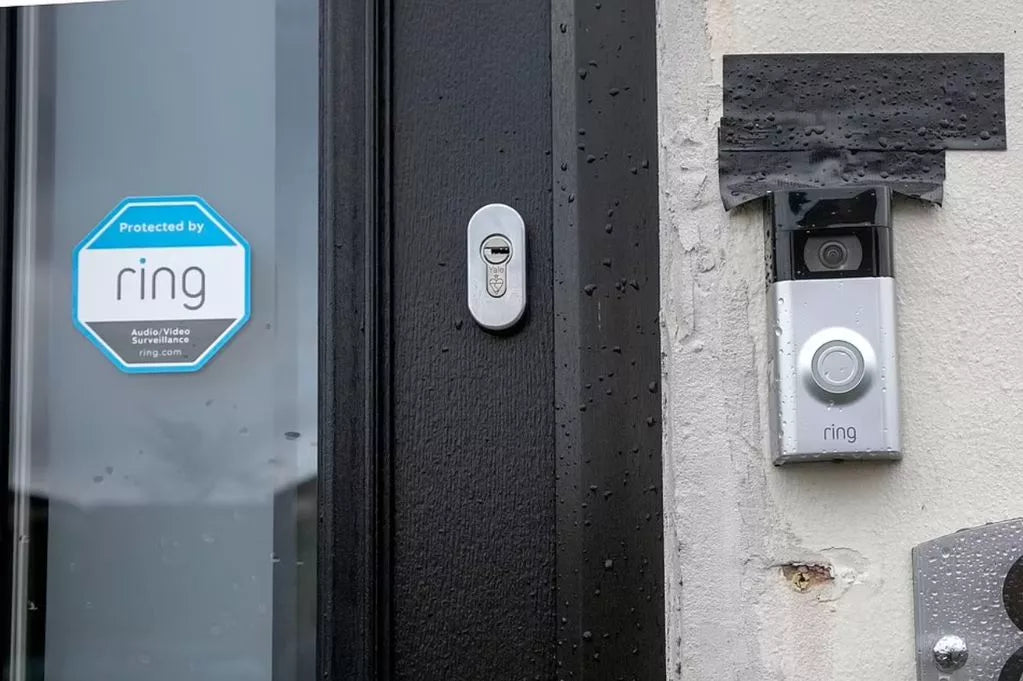
UK households who have Ring doorbell face £100,000 fine due to little-known rule
Share
UK Households Warned: Smart Doorbells May Be Breaching Data Protection Laws
In a startling revelation, UK residents are being cautioned that their use of smart doorbells could inadvertently lead to violations of data protection laws. These popular devices, celebrated for enhancing home security, might be capturing more than just doorstep activity, potentially infringing on the privacy of neighbours and passers-by.
The Unseen Eye
Smart doorbells, equipped with High-Definition cameras and motion sensors, are designed to monitor visitors and deter potential intruders. However, many users are unaware that their devices may record areas beyond their property boundaries, including public footpaths and neighbouring homes. Such unintended surveillance can lead to significant legal repercussions under the Data Protection Act 2018 and the UK General Data Protection Regulation (UK GDPR).
Legal Implications
The Information Commissioner's Office (ICO) has emphasized that if a recording device captures images or audio beyond the user's property, the homeowner becomes a data controller under the law. This designation imposes several obligations, including:
-
Transparency: Informing individuals that recording is taking place, typically through clear signage.
-
Data Minimization: Ensuring that only necessary footage is captured and stored.
-
Rights of Individuals: Providing access to recorded footage upon request and deleting data if individuals object, unless there is a compelling reason to retain it.
Failure to adhere to these requirements can result in substantial fines and legal action.
A Cautionary Tale
In a notable case, a homeowner faced legal challenges after their extensive use of smart security devices was found to infringe upon their neighbour's privacy. The court ruled that the devices, which recorded areas beyond the individual's property, violated data protection laws, leading to significant financial and reputational consequences.
Best Practices for Compliance
To avoid potential legal pitfalls, homeowners are advised to:
-
Assess Device Placement: Ensure cameras are positioned to capture only the intended areas within your property boundaries.
-
Inform Others: Display clear signage indicating that recording is in operation.
-
Regularly Review Footage: Delete recordings that are no longer necessary to minimize data retention.
-
Stay Informed: Keep abreast of guidance from regulatory bodies like the ICO to ensure ongoing compliance.
By taking these proactive steps, homeowners can enjoy the security benefits of smart doorbells without compromising the privacy rights of others or breaching data protection laws.
Top 10 Frequently Asked Questions About Smart Doorbells and Privacy
-
How do smart doorbells impact my privacy?
Smart doorbells can inadvertently capture video and audio beyond your property, potentially recording neighbors and passersby without their consent. This raises privacy concerns and may lead to legal implications if not managed properly.
-
What are the security risks associated with smart doorbells?
Security vulnerabilities in smart doorbells can include lack of data encryption, poor password protection, and absence of two-factor authentication, making them susceptible to hacking and unauthorized access.
-
Do smart doorbells comply with data protection laws?
If used correctly—recording only within your property—smart doorbells are generally compliant. However, capturing footage beyond your property can subject you to data protection laws, such as the GDPR, especially if it leads to privacy infringements.
-
Can smart doorbell footage be used as legal evidence?
Yes, footage from smart doorbells can be used in legal proceedings, particularly in cases involving anti-social behavior or crimes captured on your property. However, the admissibility of such evidence may depend on how the footage was obtained and whether it complies with privacy laws.
-
How can I enhance the security of my smart doorbell?
To improve security, choose devices from reputable manufacturers, ensure they offer data encryption, use strong, unique passwords, enable two-factor authentication, and keep the device's firmware updated.
-
Are there subscription fees associated with smart doorbells?
Many smart doorbells require subscription fees for services like cloud storage of video footage, advanced features, or extended warranties. It's important to consider these ongoing costs when purchasing a device.
-
How do I inform visitors that my doorbell is recording?
Transparency is key. Display clear signage near your doorbell indicating that recording is in progress. This practice helps inform visitors and passersby, fulfilling legal obligations under data protection laws.
-
Can smart doorbells be hacked?
Yes, if not properly secured, smart doorbells can be vulnerable to hacking. Ensuring your device has robust security features and following best practices can mitigate this risk.
-
Do smart doorbells record audio, and is it legal?
Many smart doorbells have audio recording capabilities. Recording audio can be more intrusive than video and may be subject to stricter regulations, especially if it captures conversations beyond your property. It's advisable to disable audio recording or inform visitors if audio is being recorded.
-
How do I choose a smart doorbell that respects privacy?
Look for devices that prioritize data security, offer customizable privacy settings, and provide clear information on data usage. Researching and selecting reputable brands can help ensure your smart doorbell respects privacy.
By understanding these aspects, you can make informed decisions about using smart doorbells, balancing security benefits with privacy considerations.
